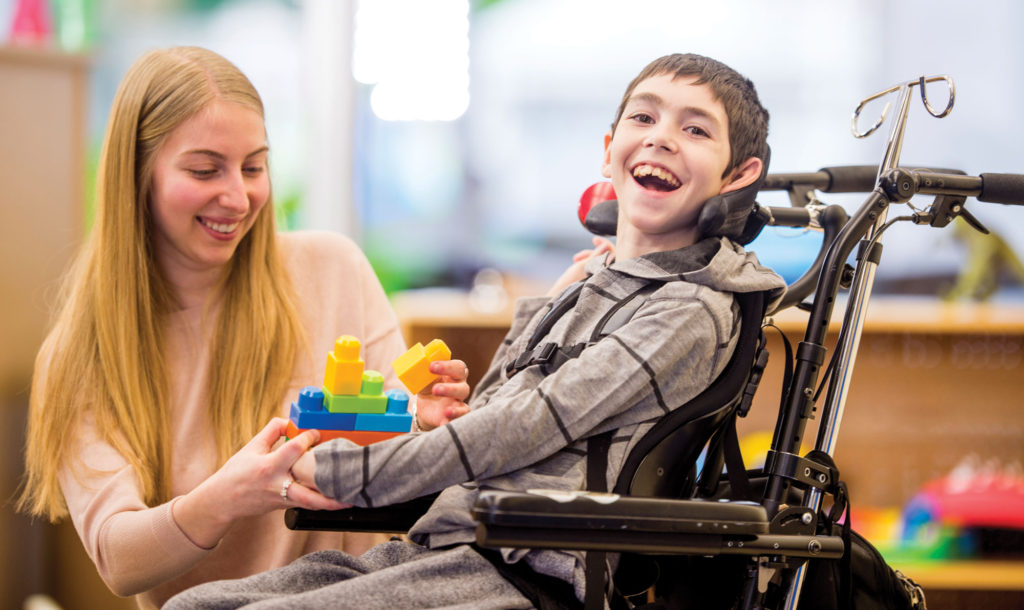If you’re a parent, chances are you’ve gotten unsolicited advice from family, friends, and even strangers. If you’re raising a child with special needs, you’ve probably had people chime in on everything from behavior to development and feeding habits.
While unsolicited advice can be frustrating for any parent, it’s even more challenging for parents of kids with disabilities to hear because most people have never experienced what our life is like. Although most of the advice and comments are well-meaning, they can still hit a nerve.
There’s no perfect way to raise a child
As any parent knows, there is no perfect way to raise a child. Every child is unique, and what works for one may not work for another. This is especially true when raising kids with medical, developmental, and behavioral issues. While some people may simply want to share their own experiences, others may be more insistent, trying to convince you that their way is the only correct way.
It can be difficult to know how to respond in these situations. You don’t want to be rude or dismiss their advice, but at the same time, you don’t want to feel like you’re being pressured into doing something that you’re not comfortable with.
Do what feels best for your family
It’s ok to listen to others but still do what feels best for your family. One approach that can be helpful is to simply thank the person for their advice and then explain that you’ll keep it in mind. This shows that you appreciate their input while still making it clear that you are ultimately the one who will make decisions about your child’s care.
Try not to take it personally
Sometimes it seems like everyone’s a critic regarding your parenting skills. It can be tough to hear unsolicited advice about how you’re raising your kids, but it’s important to try not to take it personally.
The truth is, people offer up their opinion on parenting for all sorts of reasons, and it doesn’t necessarily reflect how they feel about you as a parent. Most people are genuinely trying to help, though some may be trying to project their own values onto you.
Whatever the reason, try not to let it get to you. After all, you’re the one who knows your kids best. So trust your instincts and do what feels right for your family.
Smile and walk away if things get too heated
It can be incredibly frustrating to receive unsolicited parenting advice, especially from someone who doesn’t know your situation or even have children of their own. However, it’s essential to remain calm and polite if this happens to you.
I always try to educate whenever possible because I know most people truly don’t understand our life. Most are receptive, but there will always be those who think their way is the only correct way.
If the person continues to push their opinion, you can calmly say that you’re choosing to walk away now. It may be incredibly awkward, but this can help diffuse the situation and prevent things from getting too heated. Remember, you are in charge of your child’s upbringing, so you don’t have to let anyone else tell you how to raise your kids.
Set boundaries with family or close friends
With family or close friends, it is more complicated than just walking away. You still have to see these people on a regular basis, so it’s harder to navigate the problematic encounters without tensions rising.
It’s also important to stand your ground and not let people make you feel guilty or bad about your parenting. Explain why you’re doing things the way you are if you feel comfortable doing so. If the person continues, it’s ok to set boundaries by firmly telling them that you know what works best for your family.
In worst-case scenarios, avoiding certain people or even cutting ties is acceptable if they become too toxic. Protecting your peace and sanity is worth it.
Words of encouragement and offers of help go a long way
While it’s understandable that people want to offer support, some things are better left unsaid. For example, comments like “I’m sure he’ll grow out of it” or “You should really try XYZ” can be dismissive and fail to consider a child’s individual needs.
On the other hand, there are some things that parents do appreciate hearing. Words of encouragement, like “You’re doing a great job,” or “I’m here for you if you ever need to talk,” or genuine offers of help can go a long way.
Posted in: Special Needs
Comment Policy: All viewpoints are welcome, but comments should remain relevant. Personal attacks, profanity, and aggressive behavior are not allowed. No spam, advertising, or promoting of products/services. Please, only use your real name and limit the amount of links submitted in your comment.
You Might Also Like...

Everybody Is A Genius
“Everybody is a genius. But if you judge a fish by its ability to climb a tree, it will live its whole life believing that it is stupid.” ~ Albert […]

The Neurodivergent Spectrum: Recognizing and Appreciating Cognitive Diversity
In the tapestry of humanity, each person brings their own unique set of characteristics and experiences. This includes neurodivergent individuals whose minds dance to rhythms all their own. The concept […]

Rare Genes Day – Raising Awareness in the North State
Rare Disease Day — also known as Rare Genes Day — is a globally coordinated movement that takes place around the last day of February, and will be celebrated with […]

Raising Awareness Of Rare Genetic Conditions
February 28 is World Rare Disease Day. This is an annual observance to raise awareness for the 400 million people worldwide affected by rare diseases. Advanced medical technology and research […]





